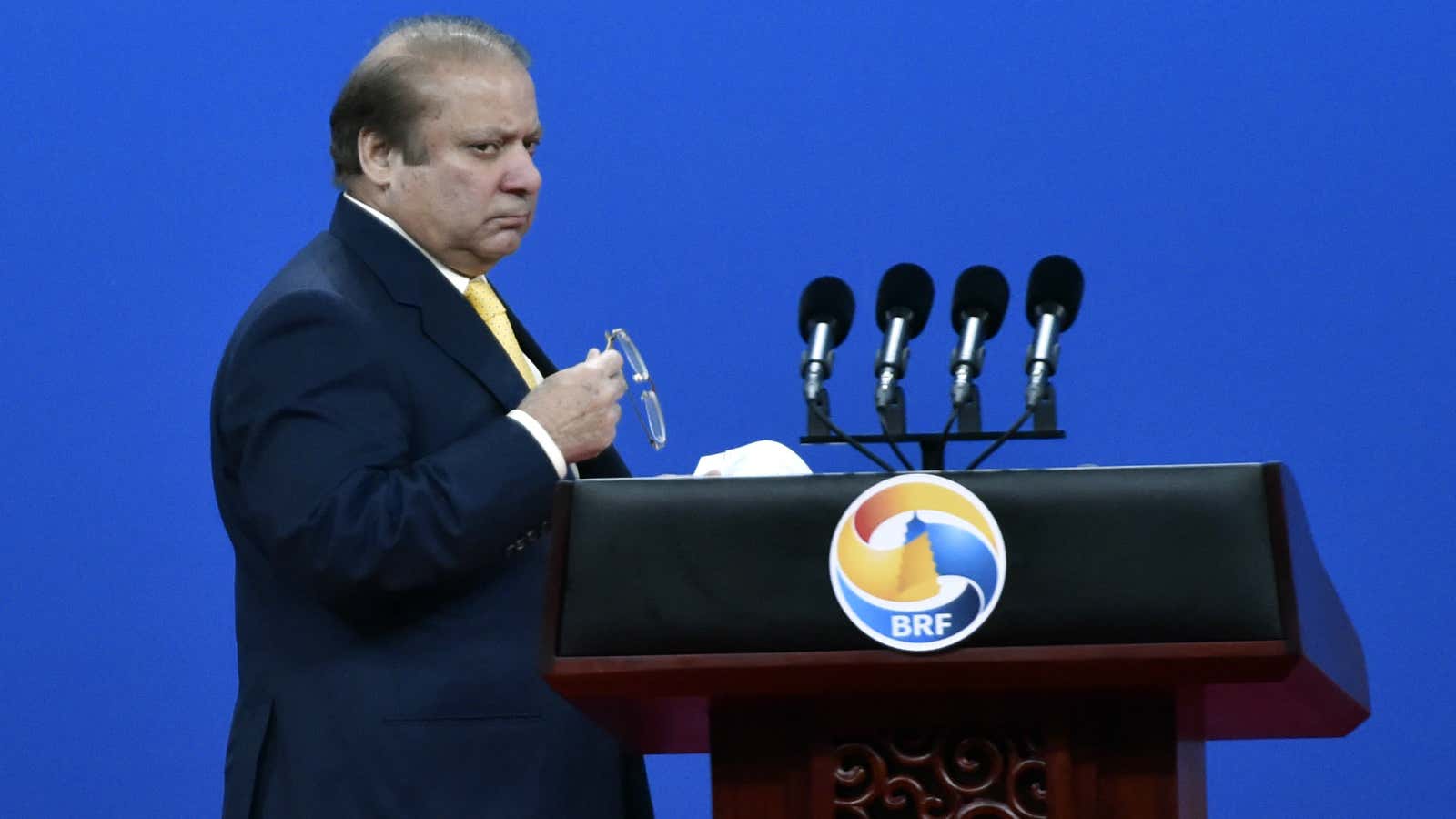The record remains intact: No elected prime minister in Pakistan’s history has managed to serve a full five-year term. Not even Nawaz Sharif, who was out trying his luck for the third time.
On his first attempt, he was pushed out of power in 1993 by the country’s powerful military after running afoul of then president Ghulam Ishaq Khan.
On his second attempt, Sharif was ousted in 1999 in a bloodless military coup orchestrated by General Pervez Musharraf who went on to rule the country for nearly a decade.
A little past noon on July 28, Sharif’s third attempt, too, ended abruptly, as Pakistan’s supreme court ordered the 67-year-old politician’s dismissal from the prime minister’s office. The verdict came after Sharif and his family were probed on corruption charges triggered by the revelations in the Panama Papers, a collection of around 11.5 million documents held by law firm Mossack Fonseca that was released in 2016.
Sharif put in his papers shortly after. ”Following the verdict, Nawaz Sharif has resigned from his responsibilities as prime minister,” a spokesman said in statement, BBC News reported.
One of the largest-ever data leaks, the Panama Papers exposed the offshore holdings of 140 politicians and public officials across the world, including those of Iceland’s prime minister Sigmundur Gunnlaugsson who was forced to step down. The leaks also contained details of assets and companies held by Sharif and his family, which hadn’t been disclosed earlier. The revelations, especially around prime real estate owned by the family in London, set off a political firestorm in Pakistan, with opposition parties threatening massive protests unless the matter was investigated properly.
Eventually, last November, the supreme court stepped in and spent the next few months hearing arguments from both sides. In its 540-page verdict in April 2017, the court outlined that it wasn’t satisfied with the Sharif family’s defence. In May, a six-member joint investigation team (JIT) appointed by the supreme court began scrutinising the documents and questioned key individuals, including Sharif, before submitting its report earlier this month.
The prime minister denied any wrongdoing—in fact, his family called the JIT “a farce and an eyewash”—but a five-judge bench of Pakistan’s top court thought otherwise. It said Sharif had been dishonest to both parliament and the judiciary. “He is no more eligible to be an honest member of the parliament, and he ceases to be holding the office of prime minister,” judge Ejaz Afzal Khan was reported by Reuters as saying.
Pakistan’s election commission will now have to “de-notify” Sharif from his parliamentary seat, according to the Dawn newspaper, while the ruling Pakistan Muslim League (Nawaz) party finds a replacement to take over as prime minister. General elections are not scheduled till the middle of next year. “Whoever they bring will be a weak prime minister, as Nawaz Sharif would want to have someone who is more or less in line with his thinking,” Hasan Askari Rizvi, a Lahore-based political analyst, told The New York Times.
The political instability stemming from this verdict is unlikely to be good news for Pakistan’s economy, which had made some progress in the last three years under Sharif’s watch. There will also be some anxiety in the neighbourhood, particularly in India, as a weakened civilian leadership will strengthen the already powerful army’s grip over Pakistan.
